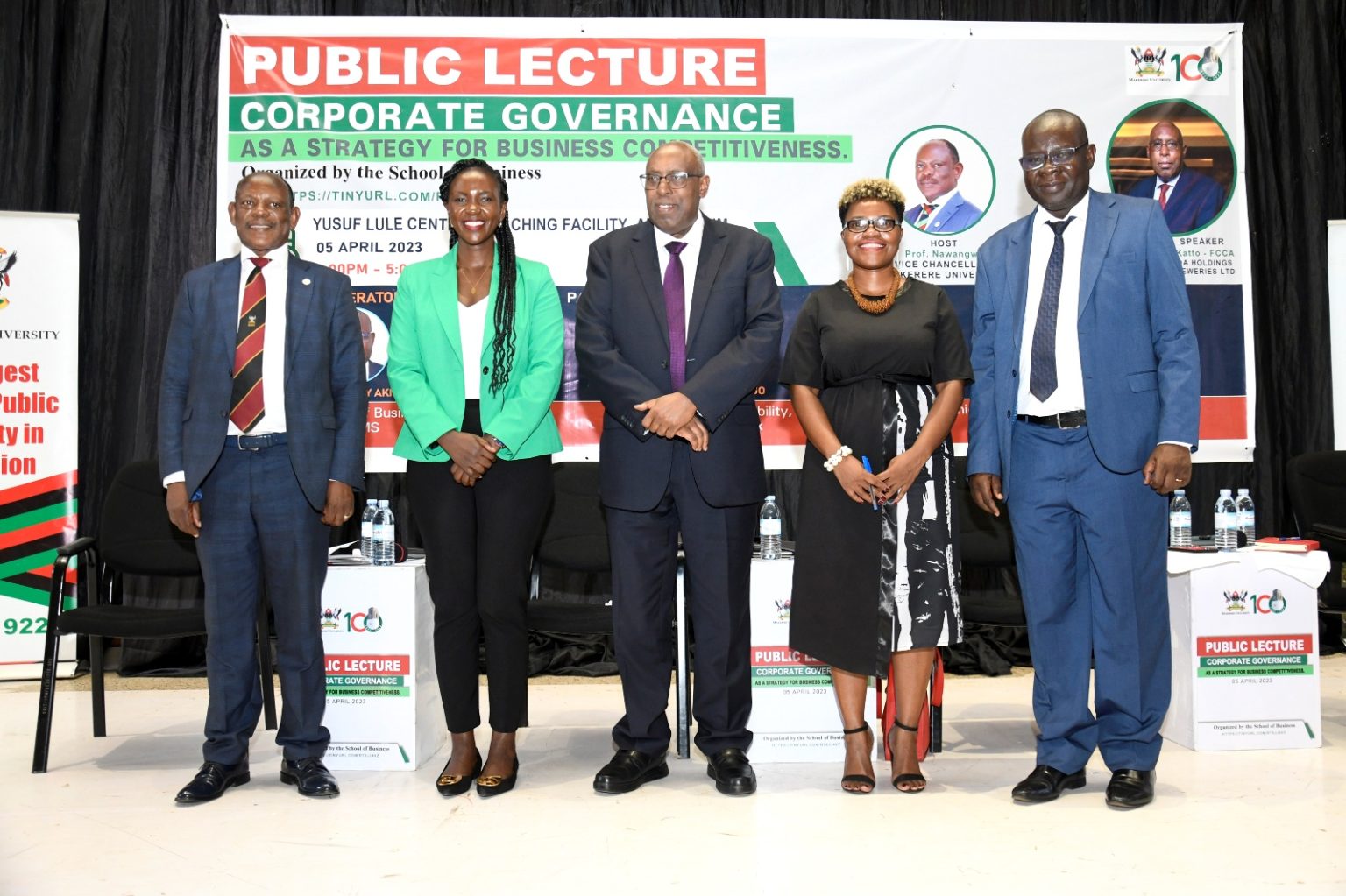Renowned Corporate Governance Consultant Japheth Katto has advised businesses to ensure their entities are run on the principles of corporate governance if they are to grow and make profit.
Corporate Governance, he said, is concerned with holding the balance between economic and social goals as well as between individual and communal goals.
Quoting Sir Adrian Cadbury, Katto said the corporate governance framework exists to encourage the efficient use of resources and equally to require accountability for the stewardship of those resources. The aim is to align as nearly as possible the interests of individuals, corporations and society.

Mr. Katto was speaking during a public lecture, organized by the School of Business, Makerere University on Corporate Governance as a Strategy for Business Competitiveness held on April 5, 2023 in the Yusuf Lule Auditorium.
He said good corporate governance is the foundation of any successful business. “In business, it refers to the purpose, people, processes, practices, and policies used to make formal decisions and run the company.”
“Research has shown that better-governed firms have higher stock prices and investors are rushing to buy their shares” Mr. Katto said.
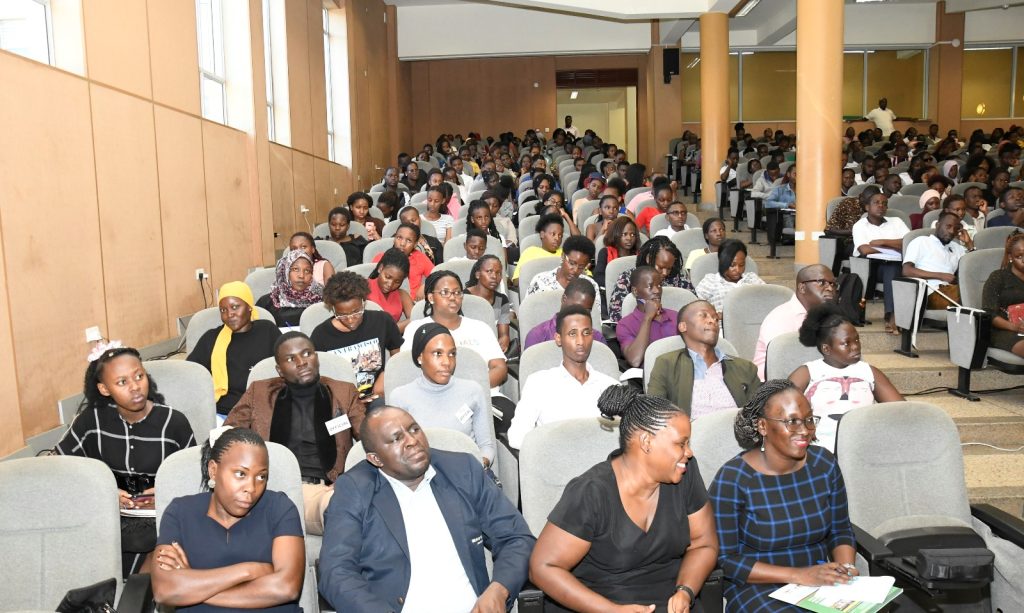
Corporate governance not only applies to big firms but also the small start-ups, Mr Katto shared.
“The high level of informality of most African Economies, which includes Uganda and the role of these businesses that operate informally (SME’s who employ 75% of Ugandans) significantly add to the economic growth of the economy but –
there are no formal ways to enforce and improve their corporate governance since they are not officially captured in the data. Uganda’s 1.1 million SME’s account for 80% of the country’s GDP and 90% of its private sector,” he said.
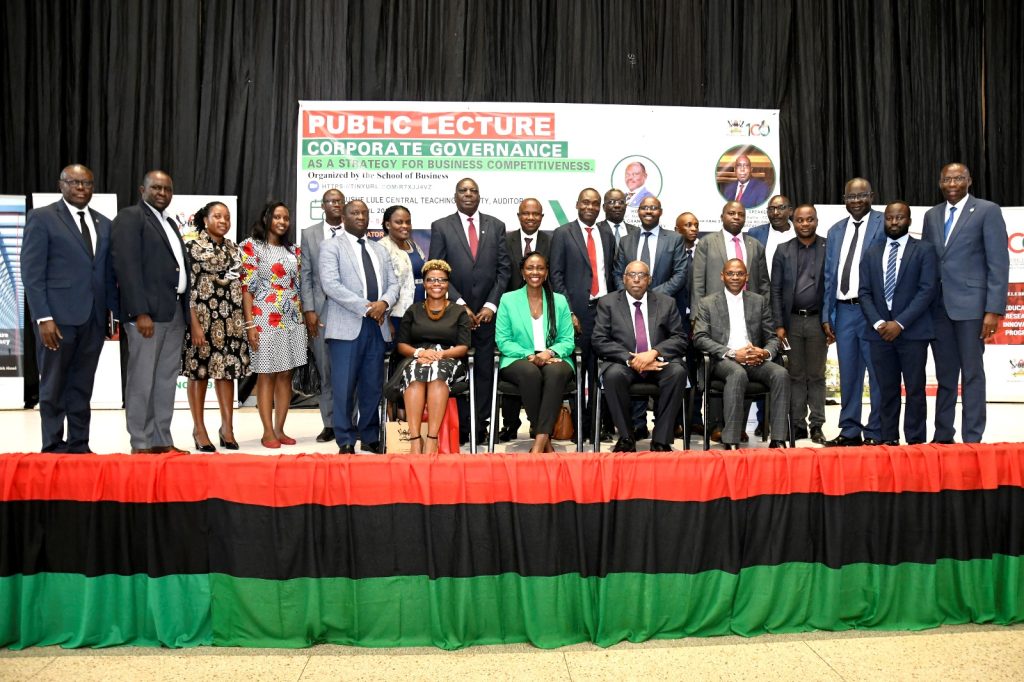
Mr. Katto shared that corporate governance has some pillars that all firms must abide by. These include;
- Transparency
- Accountability
- Fairness
- Responsibility
- Independence
- Ethical conduct
- Reputation and Reputational risk

All these pillars, Ambassador Damalie Ssali one of the panelists added, must be imbued in the employees of the organization. She underscored the importance of diversity among board members as well as employees. She said diversity will result in innovation among the employees and thus spur competitiveness.
“Your organization should have diversity of skills and gender. Research has shown that companies with gender diversity perform better than those that are male dominated” she added.
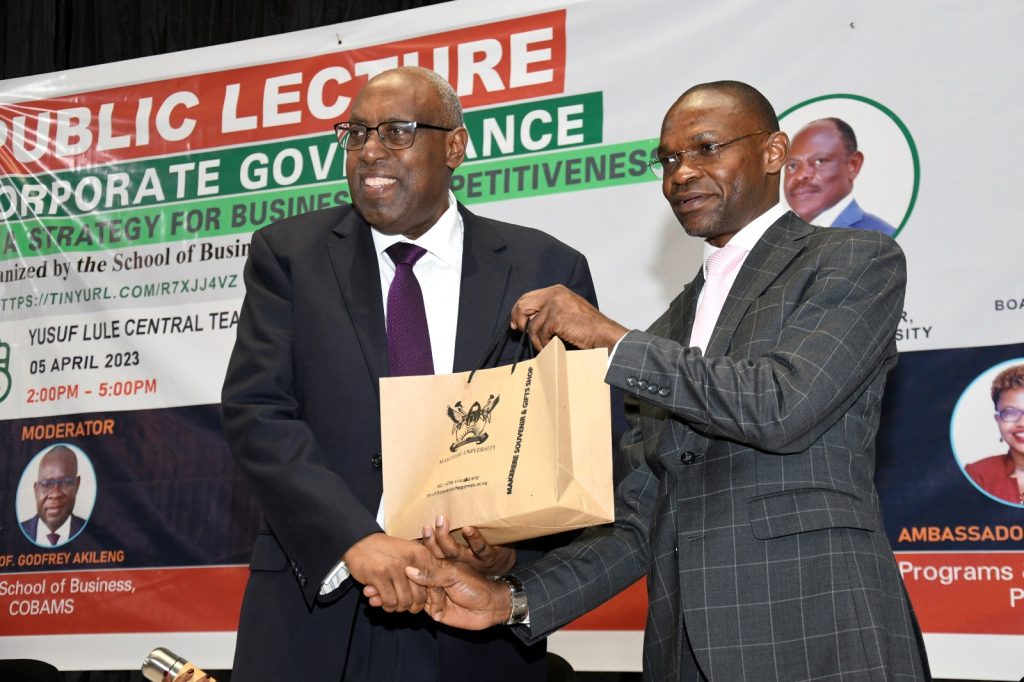
To become competitive, businesses were advised to 1. Establish and implement clear policies and procedures 2. Appoint a suitable board of directors (skills, ethics, independence) 3. Implement robust internal controls and trainings, and 4. Be accountable.
Once a company is competitive it stands to gain from access to loans, access to markets, strategic partnerships, talent retention, good will from the public, reporting and accountability and long term sustainability among others.
On the qualities of individuals that companies hire, Mr. Katto said, “We’re looking for three things, generally, in a person: intelligence, energy and integrity. And if they don’t have the last one, don’t even bother with the first two”.
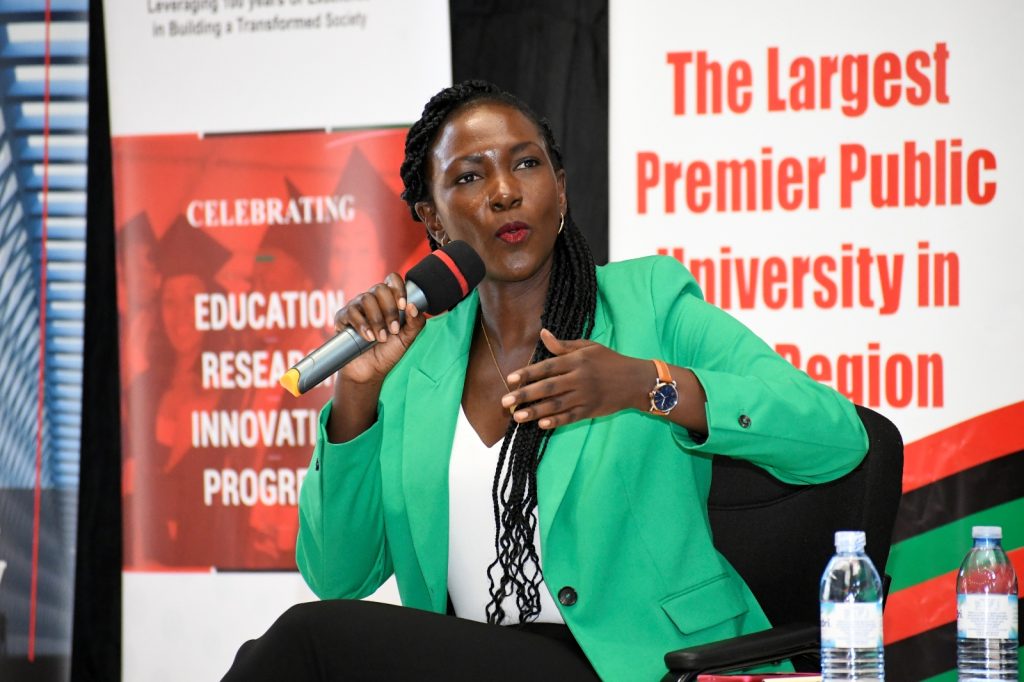
Ms. Cathy Adengo, one of the panelists emphasized that people want to be associated with organizations that have good corporate governance because those will thrive. She advised the students to look to such firms when searching for jobs.
The public lecture was graced by the Vice Chancellor Prof. Barnabas Nawangwe who appreciated the keynote speaker for sparing time to share knowledge with staff, students and members of the public present. He encouraged the students to listen attentively as he too was delighted to listen to Mr. Katto and learn something new on corporate governance.

He thanked the School of Business for organizing the public lecture for it will benefit the students. “They will go out to lead the world better equipped,” he said.
The Vice Chancellor made reference to a newspaper article that cited the Mulwana Empire as being one of the few surviving family businesses in Uganda, which was attributed to its corporate governance. In reference to Makerere, he said the institution also survived the political turmoil of the 1980s due to good corporate governance.

The Dean School of Business, Prof. Godfrey Akileng who represented the Principal of the College of Business and Management Sciences (CoBAMS), Prof. Eria Hisali, also appreciated Mr. Katto and the organisers of the lecture. He challenged the students to ensure they learn something and utilize it to run or start their businesses.
“Corporate governance not only relates to private firms but can be used as a driver in SMEs and public institutions,” he said.

